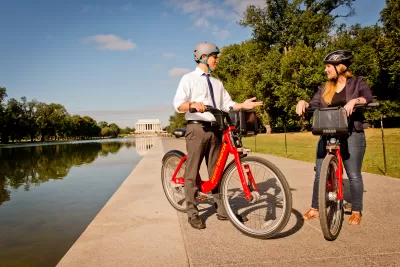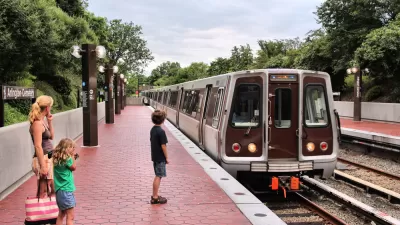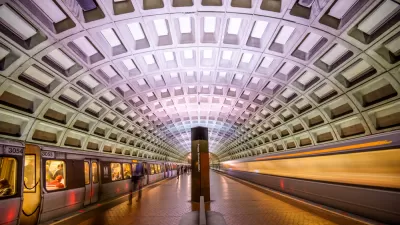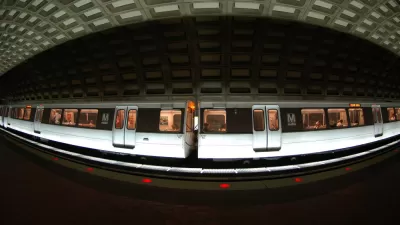Capital Bikeshare's ridership numbers are benefitting from delays and other service constraints resulting from WMATA's SafeTrack maintenance program.

"As Metro service has continued to decline in recent years, the region’s system of 3,700 bikes — and counting — has increasingly become a favorite commuting alternative," reports Luz Lazo in the Washington Post. "The number of trips since the beginning of SafeTrack in June increased about 7 percent compared with June to November 2015."
This increase is at least partly due to service interruptions and irregularities suffered by the Metro train service. During the SafeTrack program that will continue for the next year, D.C. Metro lines and stations will be disrupted or closed for maintenance. Some commuters are choosing to bike to more distant stations or avoid the train altogether. "One-day and single-trip fares are also up about 58 percent compared to pre-SafeTrack numbers," Lazo tells us. Other factors that could be causing additional use include improving bike infrastructure in the city and new bike-share facilities particularly around Arlington neighborhood.
FULL STORY: As Metro struggles, Capital Bikeshare takes bigger role in region’s transit network

Planetizen Federal Action Tracker
A weekly monitor of how Trump’s orders and actions are impacting planners and planning in America.

Congressman Proposes Bill to Rename DC Metro “Trump Train”
The Make Autorail Great Again Act would withhold federal funding to the system until the Washington Metropolitan Area Transit Authority (WMATA), rebrands as the Washington Metropolitan Authority for Greater Access (WMAGA).

DARTSpace Platform Streamlines Dallas TOD Application Process
The Dallas transit agency hopes a shorter permitting timeline will boost transit-oriented development around rail stations.

San Francisco's School District Spent $105M To Build Affordable Housing for Teachers — And That's Just the Beginning
SFUSD joins a growing list of school districts using their land holdings to address housing affordability challenges faced by their own employees.

Car-Centric LA Suburb Looks to a Train-Oriented Future
City leaders in Rancho Cucamonga, the future western terminus of the Brightline West rail line to Las Vegas, want to reimagine the city as a transit-oriented, pedestrian-friendly community.

New Alaska Bitcoin Mine Would Burn as Much Energy as the State’s Largest Coal Plant
Fueled by “stranded” natural gas, the startup hopes to become the largest in the US, and to make Alaska an industry center.
Urban Design for Planners 1: Software Tools
This six-course series explores essential urban design concepts using open source software and equips planners with the tools they need to participate fully in the urban design process.
Planning for Universal Design
Learn the tools for implementing Universal Design in planning regulations.
Municipality of Princeton
Roanoke Valley-Alleghany Regional Commission
City of Mt Shasta
City of Camden Redevelopment Agency
City of Astoria
Transportation Research & Education Center (TREC) at Portland State University
US High Speed Rail Association
City of Camden Redevelopment Agency
Municipality of Princeton (NJ)





























